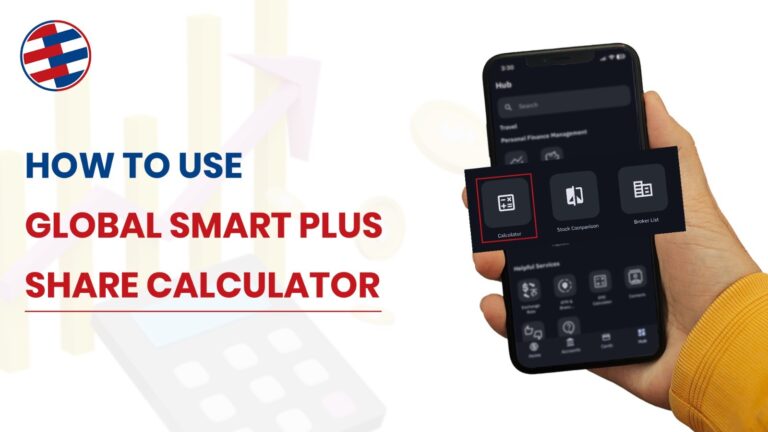Nowadays, the term “property valuation” is heard more frequently, especially among those applying for foreign studies or whose family members are going abroad. Understanding property valuation is crucial for making informed decisions, particularly when it comes to securing loans or understanding the true value of your property. Let’s take a closer look at what property valuation is and why it’s so important.
What is Property Valuation?
Doing a property valuation means to evaluate the current market value of real estate or land. In other words, it is the estimated price of your property based on location, size, usage, and the trend in the market. To put it differently, it is as if you got a price list for the land you are selling or the house that you still live in, but professionally done.
For banks like Global IME Bank, property valuation is the key to approving the loan facility against the property as it defines the maximum amount of loan that can be given. If you are someone planning to apply for a student loan or any kind of secured loan, property valuation is one of the first and most crucial steps. It’s not just about what you think your house or land is worth-it’s about what the bank believes it’s worth, backed by expert evaluation. This is also a crucial step during home loan.
Requirements for property valuation
Minimum requirements of property that can be evaluated by bank needs to meet the following criteria:
- Identification document of owners-citizenship
- Land title deed (such as Rajinama, Bakaspatra, Chodpatra, Ansabanda etc.)
- Lalpurja
- Original Blue print of land and/or trace map (to be received by Bank official)
- Original Four boundary certificate
- Municipal approval of building drawing (naksa pass)
- Building completion certificate (in case of completed building)
- Municipal tax (tiro rashid)
- Other documents as appropriate
Submitting Loan Application
For obtaining the loan you need to formally submit your loan application. Here’s a checklist of what you’ll need:
- Completed loan application form
- Copy of valuation report
- Academic documents (for student loan)
- Offer letter from the foreign university/college
- Applicant’s and guarantor’s citizenship
- Proof of income (if any)
- Relationship certificate (if using parent’s property)
After submission, the bank will register your application and forward it to the credit department for assessment.
Steps of Property Valuation at Global IME Bank
Once you submit your request for a property valuation for loan, loan application is received and preliminary evaluation of eligibility is done and once confirmed process for valuation is initiated. A valuator appointed by Global IME Bank visits the property. During this visit, they do the following:
- Measure the land size using GPS or measuring tools
- Check the location and road access
- Take photos of the property from different angles
- Verify if the details match with the documents you submitted. Our valuator needs the site map(Naksa) issued by their respective Malpot office.
- Note down surroundings, development status, and utilities
Field visit is usually within 3 days after all documents are submitted.
After the visit our valuator makes the valuation according to following steps:
- Valuation is calculated by considering 30% of the government’s set value and 70% of the market value. This method helps balance official assessments with real market conditions. This value may change as per the regulatory instruction.
- After considering all this then the final valuation report is made and provided to the bank.
Note: If any, all the charges like transportation charge, field visit charges, charge of documents required from malpot and local body need to be paid by the customer themselves
Why Banks Do Property Valuation?
Banks perform property valuation for several important reasons, especially when it comes to lending and credit risk management.
Ensuring Loan Security
Based on nature of loan, every Bank need a collateral security as back up; Land and Building are one of the most common Fixed Assets Collateral/Property. That’s where property valuation plays a critical role—it helps banks decide how much they can safely lend. The loan amount depends on the market value of the property that you mortgage. Usually, the bank offers a percentage of the total valuation—this is called the loan-to-value (LTV) ratio.
Let’s say your land is worth NPR 1 crore based on the valuation. The bank may provide up to 60–80% of this value, depending on the loan type. So without proper valuation, this calculation wouldn’t be possible.
Also, for students planning to study abroad, in addition to the family income sources, your family assets also reflect your financial strength. The valuation report from a credible bank like Global IME Bank serves as strong documentation to show embassies or universities that you’re financially capable. That’s why it’s a must-have for education loan seekers.
Preventing Overvaluation Risks
If a borrower exaggerates the worth of a property, banks could end up lending more than they should. This creates a huge risk if the borrower defaults. To prevent this, banks always rely on third-party valuators.
Overvaluation not only puts the bank at risk but also harms the borrower. You could end up with a loan that’s hard to repay. That’s why having a neutral, professional valuation helps both sides.
Time Required for Property Valuation
Time is crucial, especially if you’re planning to go abroad and need your loan fast. The average time for property valuation from our partnered valuators at Global IME Bank ranges from 3 to 7 working days. Valuator has to respond within 1 day from allotment if they are unable to conduct valuation for the proposed collateral with whatsoever reason. Else, they conduct collateral site visit within 2 days from allotment.
Later, preliminary valuation report to be submitted within 2 days from collateral site visit. Final valuation report may take upto one week.
Approval and Disbursement Steps
Here’s how the rest of the process looks:
- Internal Loan Assessment – Bank checks your documents, background, income and purpose of the loan.
- Loan Sanctioning – If everything is in place, the bank issues a loan sanction letter.
- Loan Agreement Signing – You and your guarantor sign the loan deed and related documents.
- Collateral Registration – The property is temporarily registered in favor of the bank until the loan is cleared
- Loan Disbursement – The loan is released either to your account.
For students, disbursement is often done in installments according to tuition fee structure or living expenses schedule.
Conclusion
Property valuation is a vital step in securing a loan from Global IME Bank, especially for students planning to study abroad. It not only determines your loan eligibility but also ensures that your property meets legal and market standards. From site inspection to valuation reports and loan disbursement, understanding each step helps you avoid delays and make informed decisions. Whether you’re using your own property or your parent’s, getting a clear valuation can smoothen your loan journey and give you a strong financial foundation.
Frequently Asked Question
Can I use the same valuation report for different banks?
No. Each bank, including Global IME Bank, conducts its own property valuation through authorized valuators.
Can I get a student loan using my parent’s property?
Yes, you can. Students applying for education loans can use their parent’s property as collateral.
Can we increase the property valuation?
No, the property values can neither be increased or decreased, valuation done following the valuation guidelines.
Who can perform property valuation?
A professional engineer, generally appointed by the bank will perform the property valulation.






